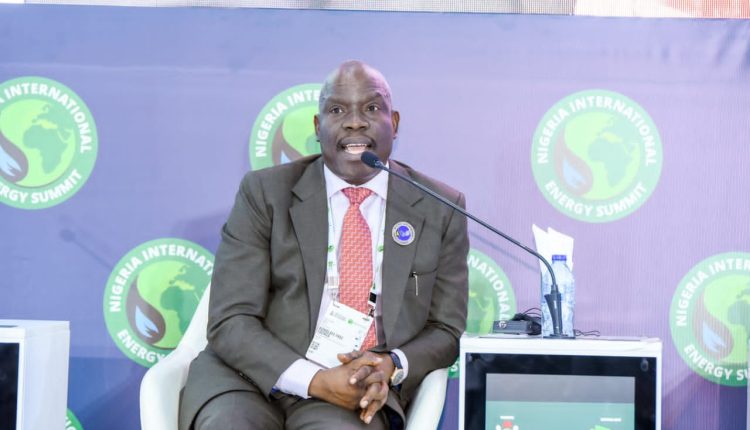NUPRC Releases Regulatory Framework for Asset Divestment in Oil, Gas Sector
By Ndubuisi Micheal Obineme
…Outlines terms and conditions on asset divestment following the decisions of IOCs to sell its Nigerian onshore and shallow water assets.
…NUPRC boss says due process must be followed to get approval.
The Nigerian Upstream Petroleum Regulatory Commission (NUPRC) has made public the terms and conditions required for asset divestment, including the role of the commission and due diligence processes that exiting International Oil Companies (IOCs) must fulfill for such deals to be approved by the commission.
The Petroleum Industry Act (PIA) mandates the Nigerian Upstream Petroleum Regulatory Commission to govern activities around the upstream value chain to ensure efficiency and operational excellence through regulating technical and operational activities in the Nigerian upstream sector.
In a statement obtained by The Energy Republic, the NUPRC outlined the key requirements needed for approval on asset divestment for companies interested in buying the assets from International Oil Companies, which is now a major talking point in Nigerian oil and gas industry.
In recent times, asset divestment has become a major talking point following the announcements from International Oil Companies exiting Nigerian onshore and shallow water terrains due to operational and legal issues, that led to the sale of its assets to indigenous companies.
For instance, in February 2022, Seplat Energy Plc announced an agreement to acquire the entire share capital of Mobil Producing Nigeria Unlimited from Exxon Mobil Corporation, Delaware, for $1.28 billion. The transaction entails the acquisition of ExxonMobil Nigeria’s entire offshore shallow water business.
More so, in January 2024, Shell agreed to sell its Nigerian onshore oil business, Shell Petroleum Development Company of Nigeria Limited (SPDC), to a consortium of local companies for more than $1.3 billion, a historic shift in a crucial yet controversial part of the energy giant’s global operations.
If approved by the Nigerian government, the deal would fulfill Shell’s long-term goal of extracting itself from a challenging operating environment in the Niger Delta. For decades, the company has been at odds with local communities over oil spills and accusations of human rights violations.
More recently, TotalEnergies CEO Patrick Pouyanne has said the company is seeking to sell its minority share in a major Nigerian onshore oil joint venture, following Shell’s divestment. The Shell Petroleum Development Company of Nigeria Limited (SPDC), in which TotalEnergies holds a 10% stake, has struggled with hundreds of onshore oil spills as a result of theft, sabotage, and operational issues that led to costly repairs and high-profile lawsuits over the years.
“We want to divest our share of SPDC, and we are looking to reshape the portfolio,” Pouyanne said at TotalEnergies’ annual results presentation recently.
Speaking on the asset divestment at the just concluded 7th edition of Nigeria International Energy Summit 2024, the Chief Executive of the NUPRC, Engr. Gbenga Komolafe, stated clearly that the NUPRC was not interested in blocking companies interested in buying these assets from IOCs, but due process must be followed.
According to him, the companies also known as the ‘successor entity’ interested in buying the assets from IOCs must have the Technical Capacity, Financial Capability, Fulfilment of Legal Requirements, Decommissioning and Abandonment Plan, Host Community Trust Fund, Industrial Relations and Data Repatriation.
On technical capacity, the NUPRC boss said that the successor entity must demonstrate proven and verifiable capacity to operate the asset vigorously and in a business-like manner.
The entity, he explained, must showcase competencies and capabilities comparable to or surpassing those of the divesting entity.
In addition, all production allocation and cost issues related to unitisation in the case of straddled fields must be resolved, he said.
On financial capability, the NUPRC boss explained that it shall assess the prospective successor entity’s balance sheet and financial viability as well as verify the company’s readiness to undertake a defined work programme and fulfill required obligations on the assets.
“Due diligence shall be undertaken on potential buyers to assess suitability, alignment with state interests, reputation, investment objectives, and track record, etc,” he stated.
In addition, he further explained that the acquiring entity must be ‘fit and proper’ persons in the eyes of the law and in line with the interest of the nation and must have clear evidence of the resolutions of legacy debts and legal encumbrances must be established and appropriate mechanisms to manage residuals agreed upon.
In terms of decommissioning & abandonment (D&A), he stated clearly that applicable D&A costs must be diligently assessed and settlement of outstanding obligations must be ensured.
“The commission will ensure that potential exposure of the Nigerian government to decommissioning liabilities is averted.
“Also, the commission shall assess the status of Host Community Trust Fund obligations and ensure the robustness of the successor entity’s social inclusion programme in line with the provisions of the Petroleum Industry Act, 2021 (PIA).
“The commission shall evaluate the acquiring entity’s adherence to decarbonization plans and sound Environmental Social & Governance (ESG) principles.
“The commission shall implement a robust assessment mechanism to avert undesirable labor union issues and disharmony arising from the divestment process. Concerned parties shall endorse a “Certificate of Settlement” to validate alignments reached on all labour issues (staff welfare, benefits, entitlements as well as disengagement, redundancies, retirement, etc.)
“The aim is to ensure the nation averts socio-economic disruptions arising from failure to resolve labour issues that might result as a consequence of and post divestment.
“On data repatriation, the commission noted that it shall ensure that all data mined during the operating life of the asset are repatriated to the National Data Repository (NDR) in line with extant regulations,” he added.



